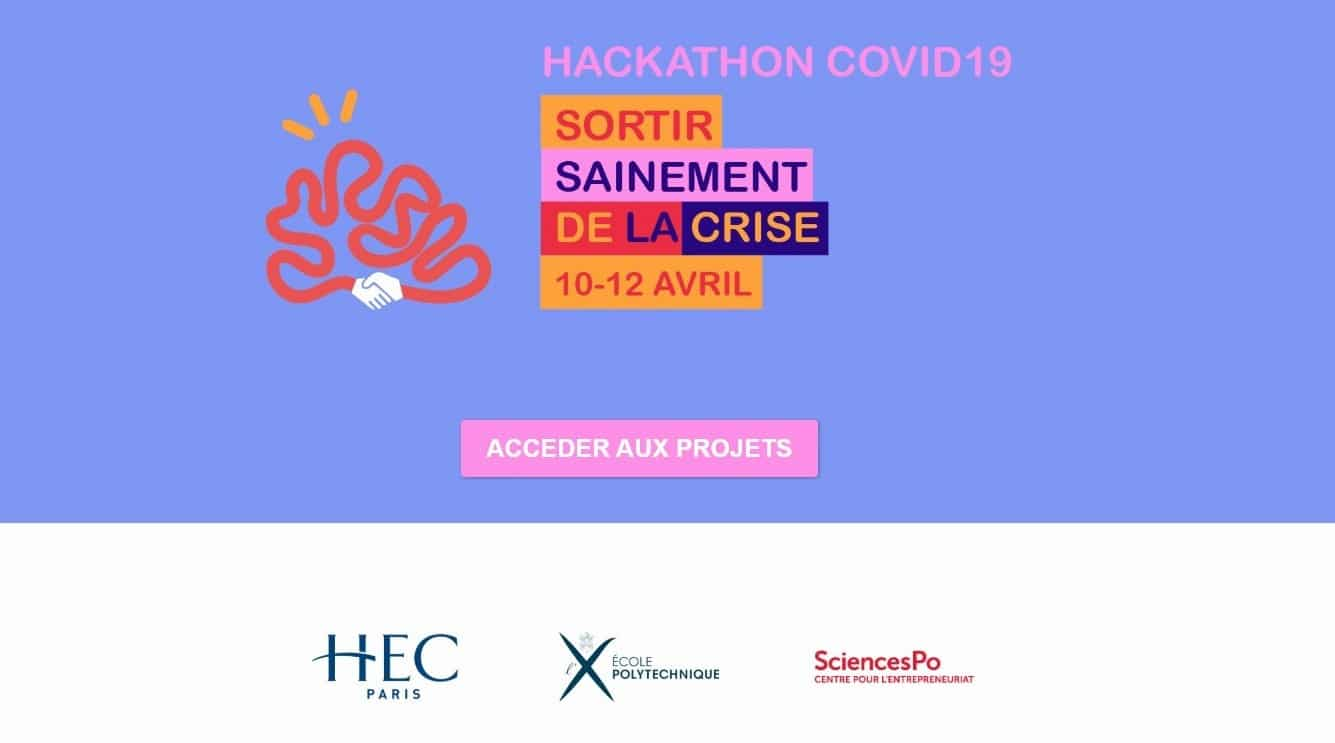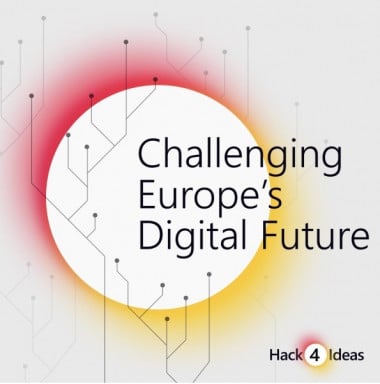How to Organize a Successful Hackathon in Today’s World?

Since their inception back in 1999, hackathons have evolved from software developers’ meetups into corporate and civic events embracing an increasingly wide range of topics and participants. By moving online during the Covid-19 lockdown, hackathons have become more inclusive and accessible than ever.
Behind the Scenes of an Online and an Offline Hackathon
Since their inception back in 1999, hackathons have evolved from software developers’ meetups into corporate and civic events embracing an increasingly wide range of topics and participants. By moving online during the Covid-19 lockdown, hackathons have become more inclusive and accessible than ever.
But who are the people behind these thrilling events and what are the keys to a successful hackathon? In this interview with three organizers, Hippolyte, Nevena and Céline, share their experience setting up online and offline hackathons.
Virtual Meeting, Real Impact: Hack Covid-19

1500 participants, 150 mentors, 104 projects: how to organize an event of such proportions during the lockdown? To answer this question, I have reached out to Hippolyte Prost, partnership manager of Hack Covid-19, an online hackathon organized this past April by ten students of three top French universities: HEC, École Polytechnique and Sciences Po.
How did you reach out to sponsors, mentors and participants in such exceptional circumstances?
“Each member of the staff contacted experts in their professional, academic, and personal networks. We started by looking for sponsors, raising €13,000 in less than three weeks. We then set up a form for mentors to fill in and selected the jurors among them. Lastly, we promoted the hackathon massively on LinkedIn and Facebook groups. Our universities and the Direction Interministérielle de la Transformation Publique also helped by sharing the event in their newsletters.”
And you managed to attract 1500 participants! What tools did you use to connect so many people together?
“Our main communication channel was Slack, but we also used Zoom for staff and jurors meetings. Teams had access to BeMyApp, a customizable hackathons platform that allows to book calls with mentors, access background material and upload final projects. One of our partners, Start the F* Up, also provided a list of no-code tools that participants could use to develop their prototypes.”
What was the hardest thing to do as an organizer? And the easiest?
“The first 5-6 hours of the hackathon were very busy, as participants had plenty of questions. We staff members were doing shifts to be available around the clock. I think I only slept some ten hours over the whole weekend! Once the teams were formed and started developing their solutions, however, everything ran very smoothly. The biggest challenge was delivering the final results on time, as the jurors had very tight schedules to convene and discuss the projects”.
Would you organize another hackathon?
“Without any hesitation! I worked with great people I would have not gotten to know otherwise and discovered plenty of no-code tools that could easily help me set up my own company one day!”
First of its Kind: Hack4Ideas

Now, let’s move into the uncharted territory of a fully no-code hackathon: a policy hackathon! This was Hack4Ideas, a competition organized by the Microsoft Center Brussels in November 2019 with 30 selected students of the College of Europe, the Central European University and (yes, again!) Sciences Po. I (virtually) sat down with project leaders Nevena Raczko and Céline Geissmann to unveil the origins of this unconventional event.
How did you come up with the idea of a policy hackathon?
“It was during a brainstorming session,” recalls Céline, Government Affairs Manager at Microsoft France. “We took inspiration from a hackathon at Harvard University and adapted it to our corporate environment. We still wanted to involve students but also tackle topics relevant to us, so we chose Microsoft’s ‘5 Ideas for 5 Years’ as challenges for participants. With the European Commission election approaching, it was an excellent moment to discuss the future of EU digital policies”.
Hack4Ideas was also special because teams only had 12 hours to work together and then had to pitch their ideas in front of the public, not only the jury. How did you handle that?
“We arranged for a training month during which participants could virtually meet their teammates, talk to mentors, and attend webinars on Microsoft Teams,” explains Nevena, Government Affairs Coordinator at Microsoft Brussels. “Then on d-day, participants finally met and were able to work together with a group of facilitators. In the evening, we welcomed the guests, jury and public for the pitches. We also let the public vote with Mentimeter to award a ‘People’s Choice’ Prize besides the three awards by the jury”.
It sounds like an electrifying day for participants. How did you experience it on the organizers’ side?
“It was very intense,” recalls Nevena. “We arrived a couple of hours before the event started to check if everything was ok. We were around all day to assist participants and coordinate technical aspects. There was a lot of ‘behind the scenes’ work, especially for the public event. For example, everyone underestimates the importance of visuals, but it is crucial to have someone to make sure that the pitch slides run smoothly. The same goes for light, sound, and voting. We also had to be ready to welcome high-profile guests, such as Lora Borissova, Head of Cabinet of Mariya Gabriel, the then European Commissioner for Digital Economy and Society”.
What would be your advice to anyone organizing a hackathon?
“Be prepared to be unprepared,” answers Céline promptly. “Have a clear goal in mind,” suggests Nevena. “At the end of the day, the point of any hackathon is to deliver some positive result, so if you don’t define what you want to achieve, your event won’t be successful.”
Whether you are organizing an online hackathon or are looking forward to the next in-person event, remember: a clear purpose, a dedicated team and committed partners are what you need to organize a successful hackathon– even in the most extreme circumstances!

In an increasingly data-driven world, understanding the differences between data, metadata, data assets, and data products is essential to maximizing their potential. This is because these interrelated yet distinct concepts each play a key role in driving digital transformation by facilitating data sharing and consumption at scale.

Organizational silos prevent data sharing and collaboration, increasing risk and reducing efficiency and innovation. How can companies remove them and ensure that data flows seamlessly around the organization so that it can be used by every employee?

